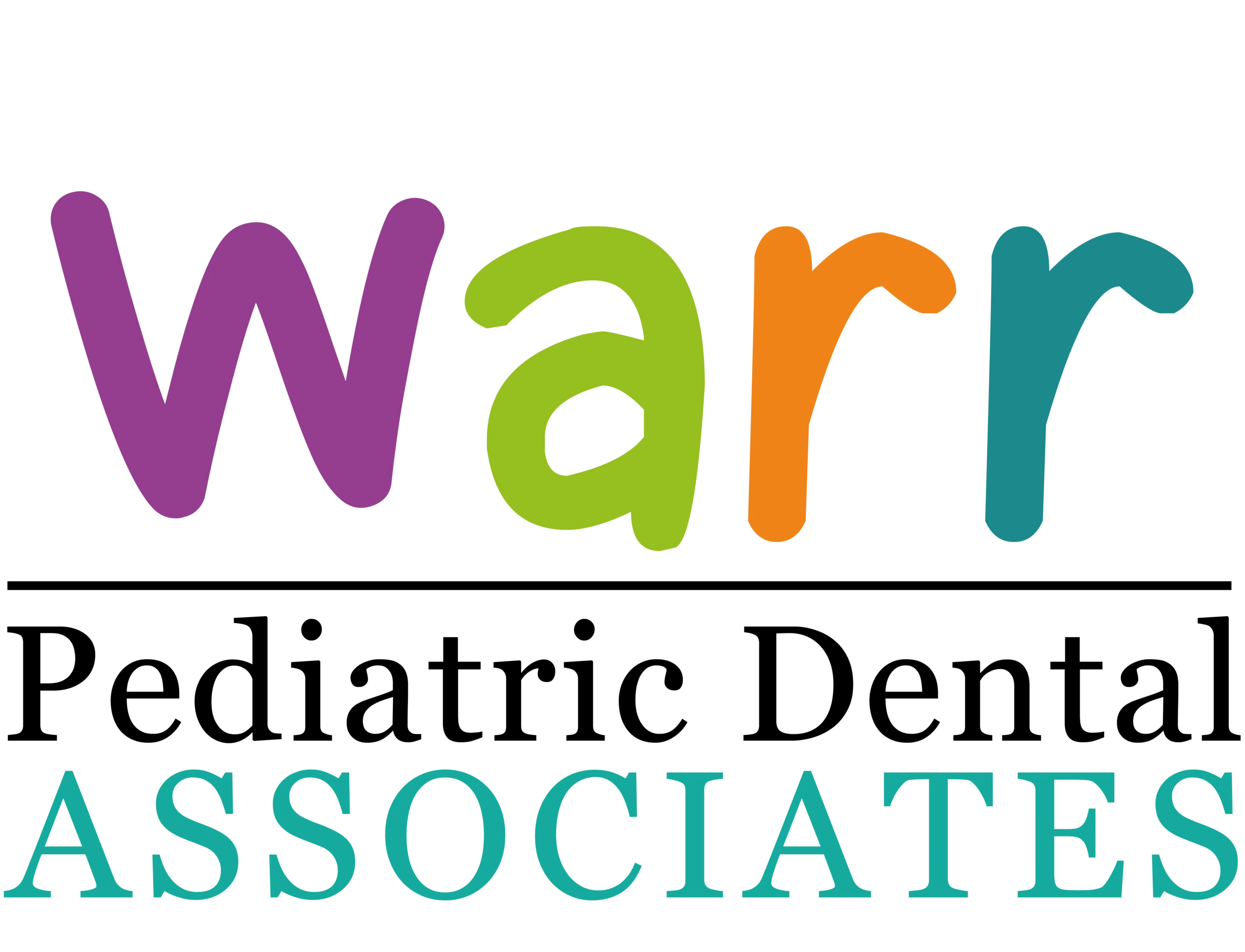Teething seems to bring on a lot of questions for most parents. How long will this last? What should I do when my baby gets fussy and how can I help? Read on for answers…
Taking Care of Your Baby’s Teeth
Even before your child starts teething, you can set a solid foundation for good dental hygiene habits by wiping their gums with a wet cloth. Massaging their gums helps to ease teething discomfort and introduces your child to the habit of having someone in their mouth.
It is important to begin brushing your child’s teeth as soon as they erupt. Wiping the gums is a great start but you should graduate to a small toothbrush once your baby’s teeth come in. There are both finger brushes and banana brushes that your child may like to use. Once they are able to hold a brush, a toddler toothbrush with a small head is what they should use. Your pediatric dentist can help you pick the proper sized toothbrush for your baby.
If you use toothpaste you should use the fluoride-free safe-to-swallow toothpaste. Adult toothpaste is too abrasive for infant teeth and is not safe to swallow. Even though toddler toothpaste is safe to swallow, you should still encourage your toddler to spit (or drool) when you are brushing their teeth. Use a smear on the tip of the brush to help with their brushing. Most toddlers may simply suck the toothpaste off of the brush but don’t worry . . . that’s where your part comes in! You should brush after your child because they simply don’t have the dexterity and will need your help with their brushing.
As your child grows older they tend to want more independence, but we recommend that you always brush after them until they are six years old. You should also help them floss until they are eight years old. Once your child has two teeth next to each other, you should begin flossing. Individual dental flossers can be a bit easier to manage, but basic dental floss will also work just fine.
Here are a few key points to remember when you consider pushing infant dental care to the bottom of your list:
- A recent study showed that children who began going to the dentist at one year of age had less dental problems and less dental anxiety. This means that seeing the dentist early will mean fewer cavities overall, as well as less fear when they do have to go to the dentist. A win-win!
- That study also showed that the earlier your child starts going to the dentist, the less you (and they!) will spend on dental care during their entire lifetime. It is important for your child to find a dental home at the age of one. Don’t wait until they begin to have problems with their teeth.
- How new teeth erupt (come in) can determine your baby’s oral health for a lifetime. It is important to have a dentist assess the status of the baby teeth as they come in.
- When you come in for your child’s first dental appointment with us, our staff will demonstrate how to brush and floss your little one’s teeth at home. We will also give you tips for toothbrushes and toothpaste, as well as information about how to select healthy snacks. Dr. Warr and the entire team at Warr Pediatric Dental Associates will continue to help clarify and reinforce good dental habits as your child grows.
- Quality infant dental care doesn’t have to be expensive! In fact, we are so committed to infant oral health that we will give you a free first visit if your child is 2 or under. We are well trained to handle the littlest wiggle worms!
When in doubt, remember your infant dental care ABCs:
- At Bedtime Consistently: Plan to brush your baby’s teeth twice each day. It’s especially important to establish a bedtime routine. Since many children like to nurse or have a bottle before bedtime, it’s always important to make sure that the teeth are clean before you lay your baby down.
- Avoid Bedtime Consumption: Make sure that your infant is NOT sleeping with a bottle or at-will nursing while sleeping. Cavities from nursing or bottles are very prevalent and one of the chief causes of Early Childhood Caries (ECC). After nursing or their bottle, you should wipe or use the finger brush to clean their teeth. There are also many different types of baby tooth wipes developed especially for a baby’s mouth that make this step easier.
- Always Bring Comfort: When your child is teething, the key is to find what works for your baby. Some toddlers enjoy warm things while others prefer cooled teething rings. Some children respond better to over-the-counter pain relievers while others do better with homeopathic remedies. Always pick what makes you and your toddler comfortable.
Having an established dental home for your child as early as possible — even as early as 6 to 12 months old — will set them up for a lifetime of healthy dental hygiene habits.
We can meet with you and your child virtually, if coming into our High Point office isn’t viable for your family. Give us a call at 336-887-9277 to discuss all your options. (If your infant or toddler has a dental emergency, please call our office emergency line for immediate assistance.)
And don’t forget your coupon for a FREE first visit with us!

